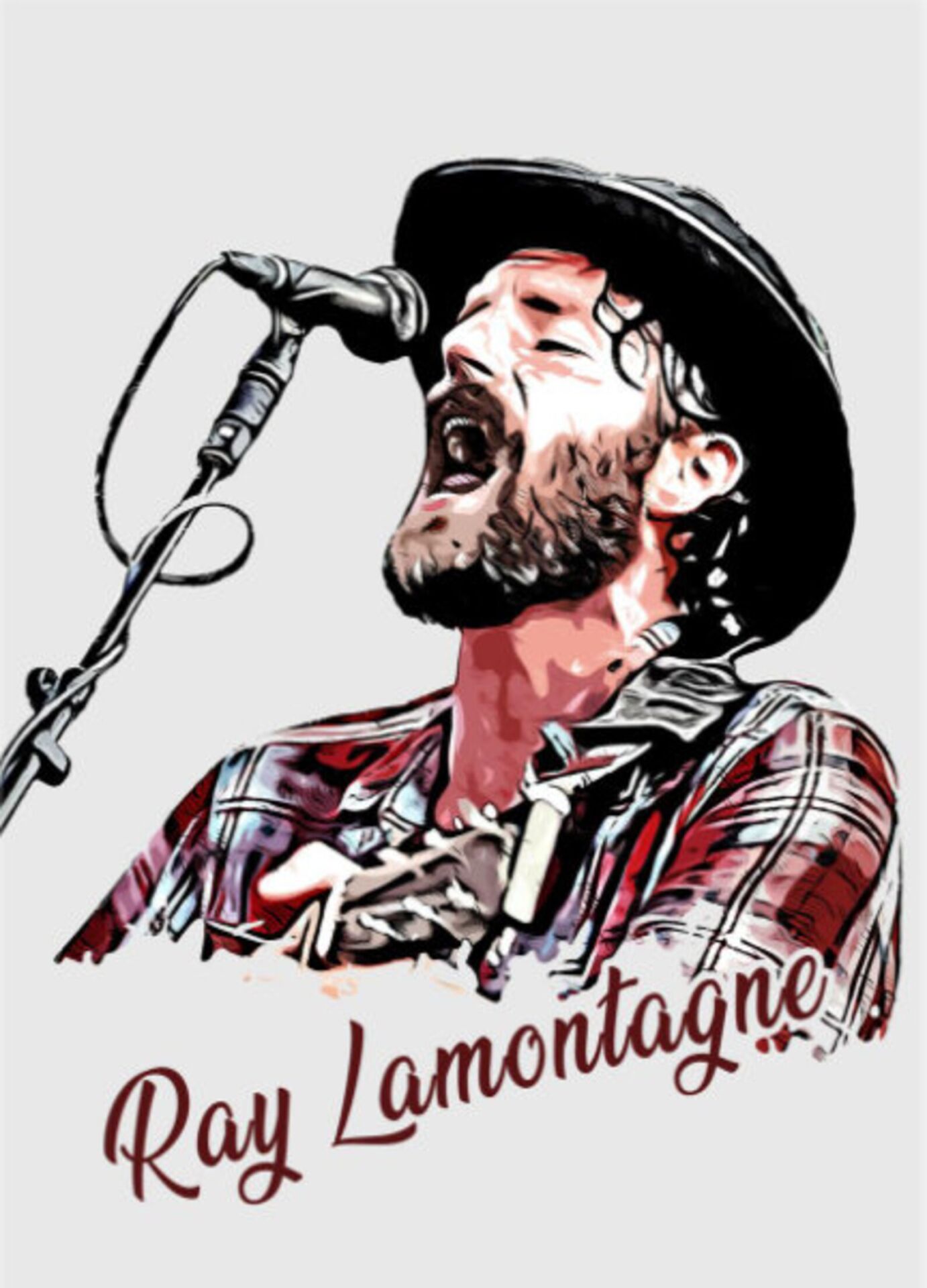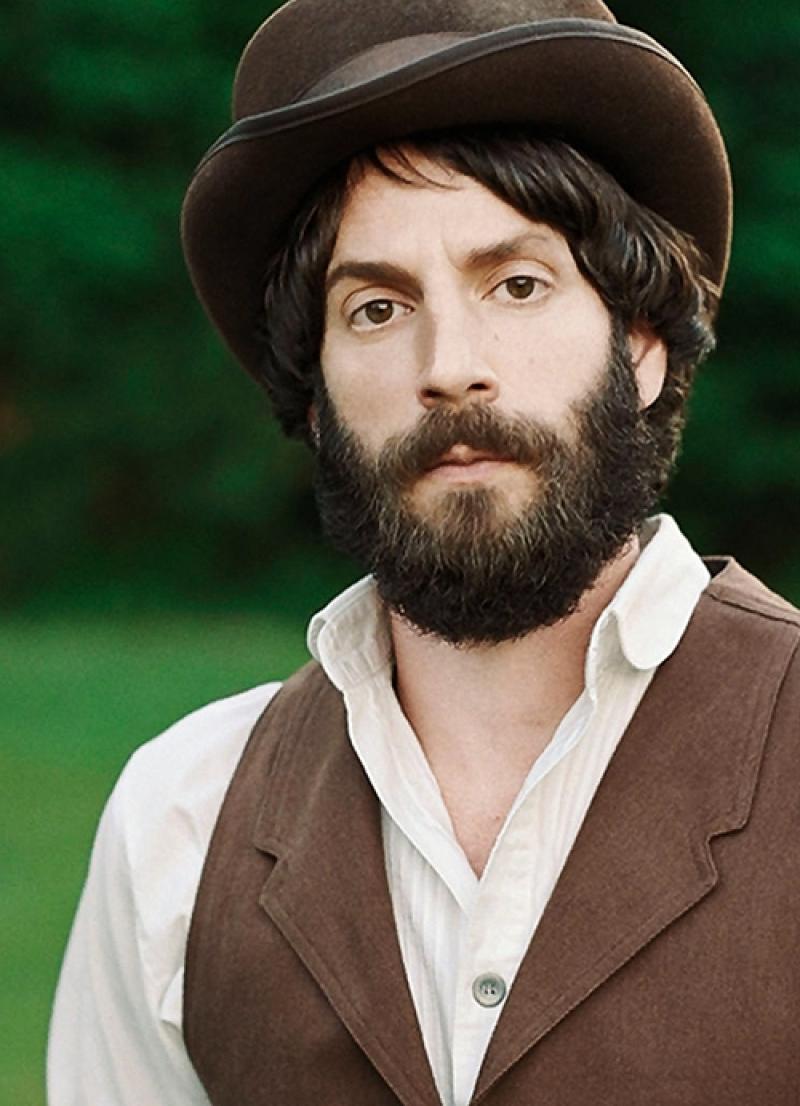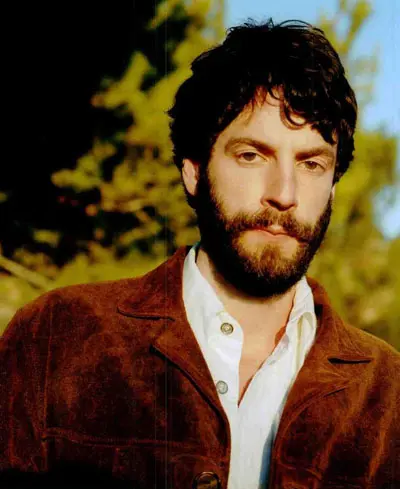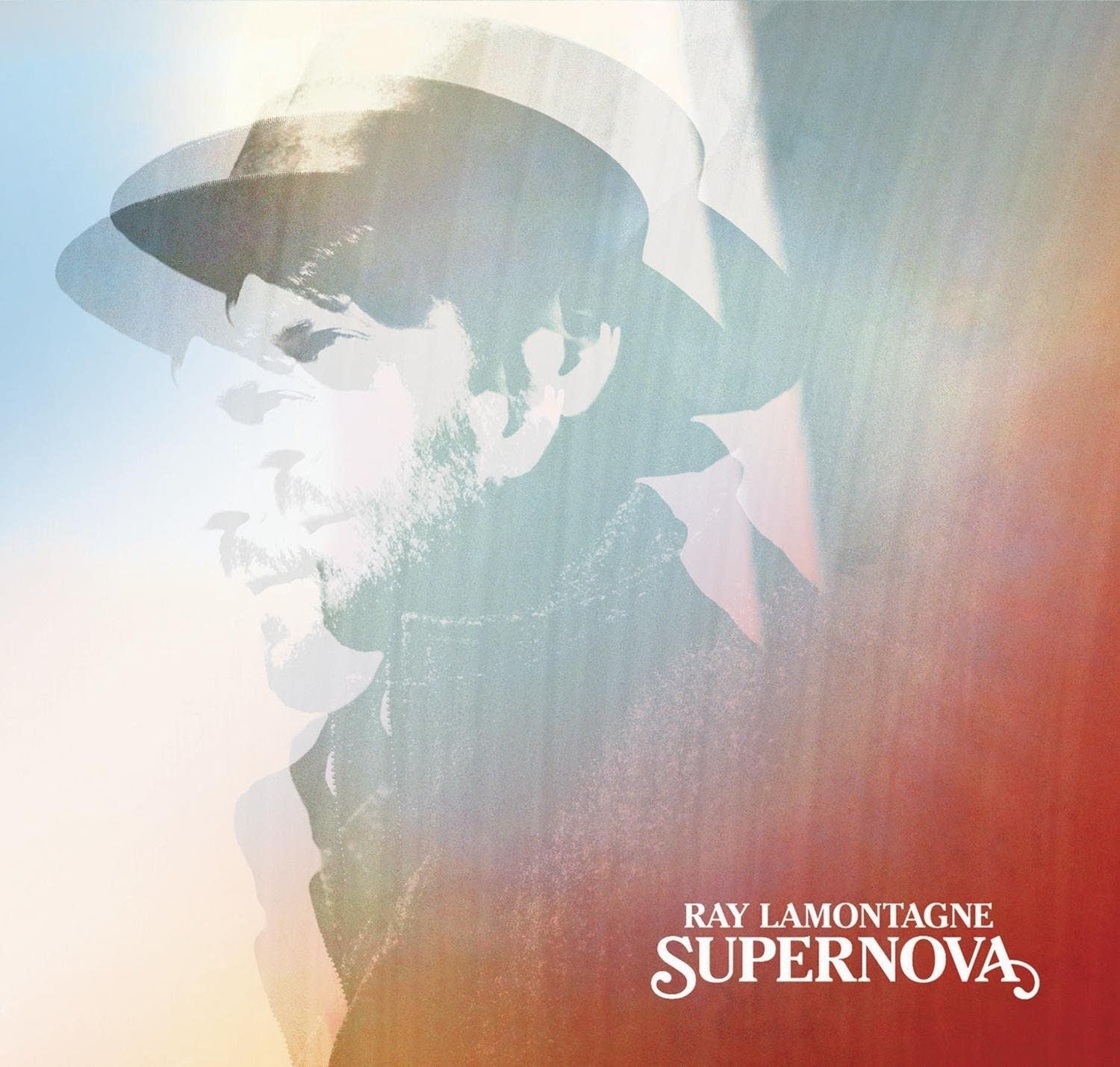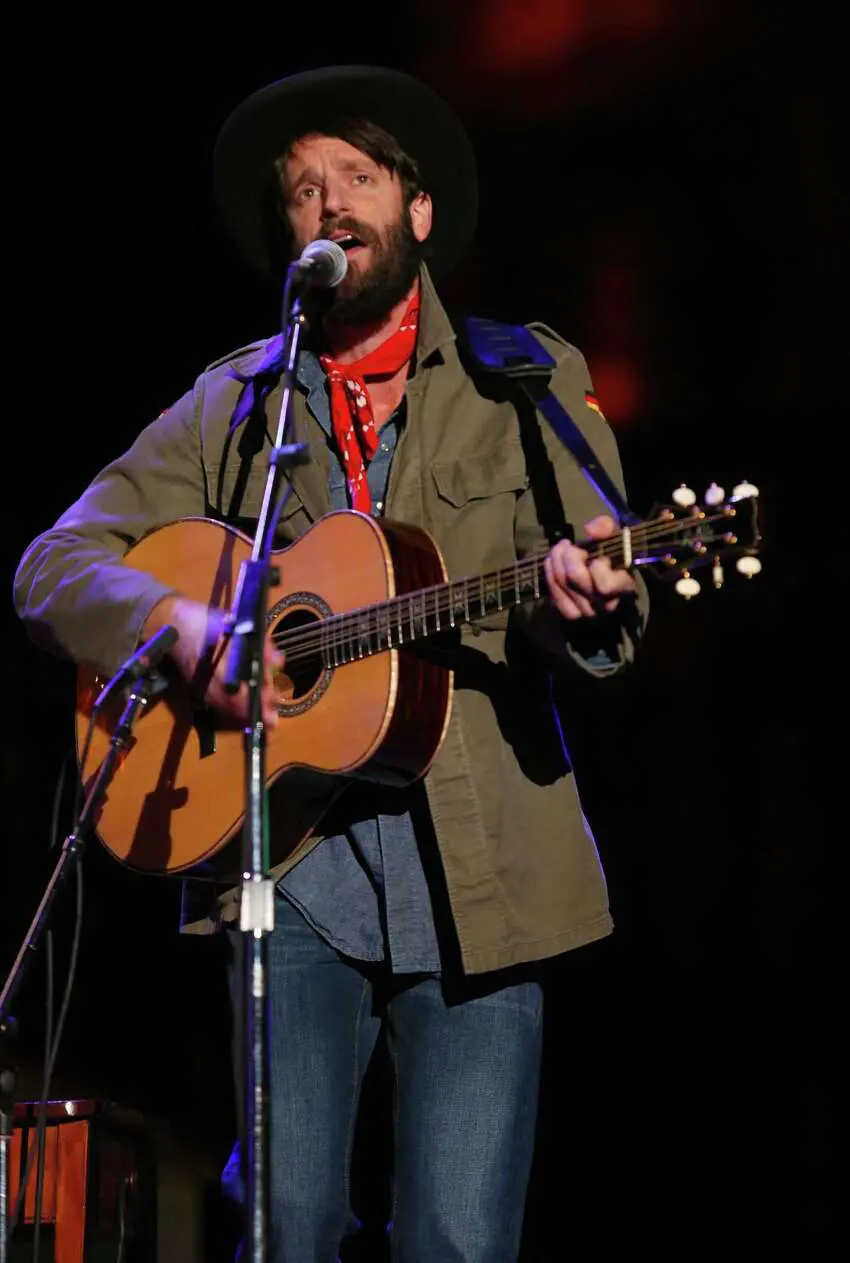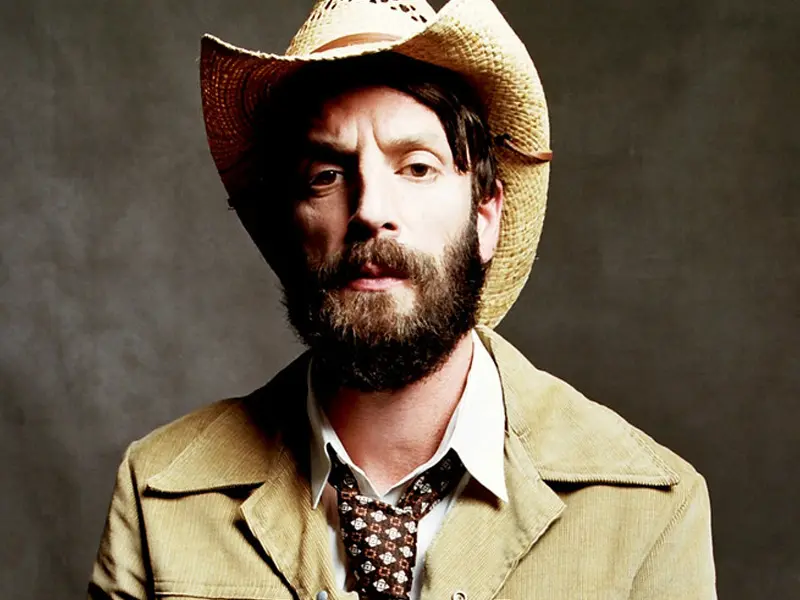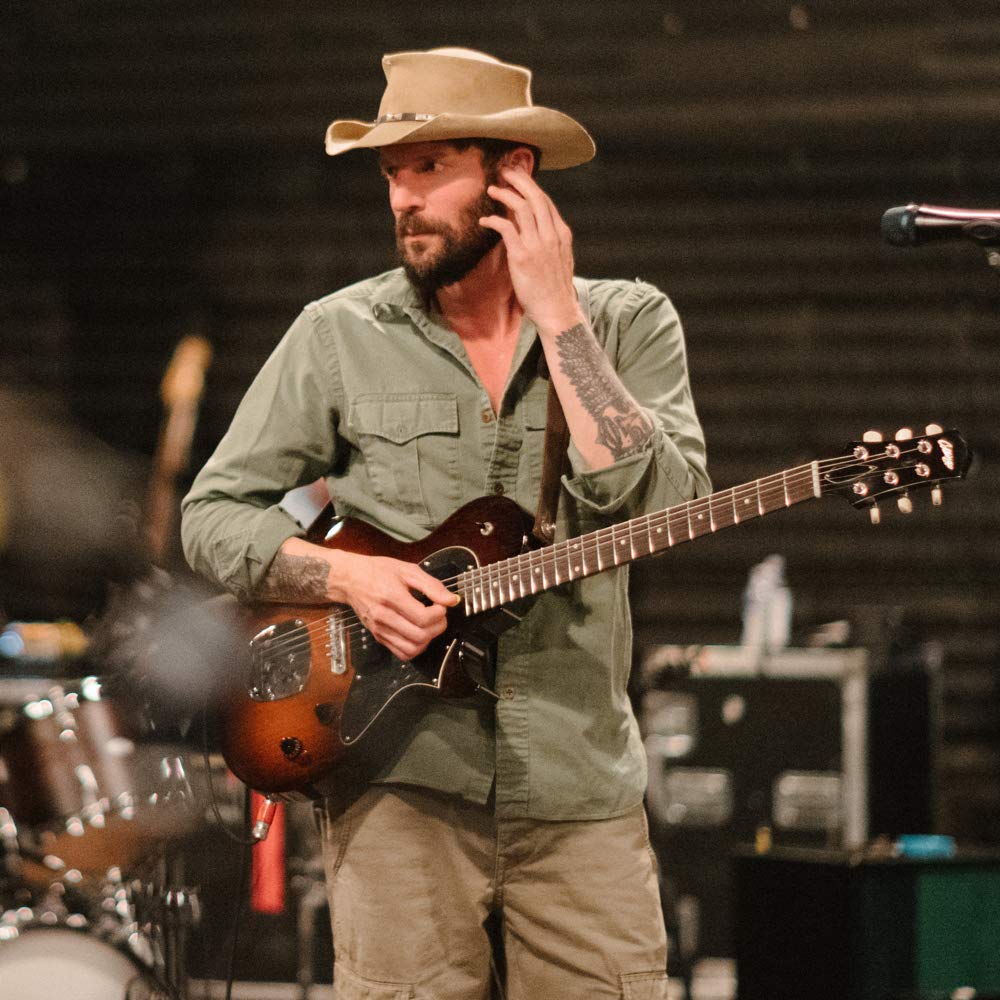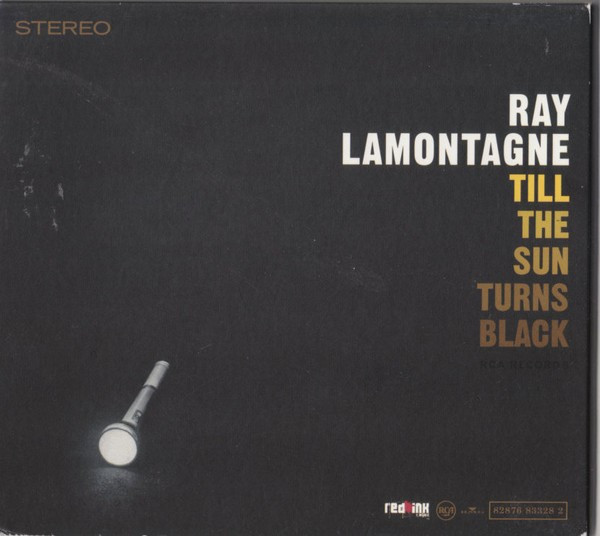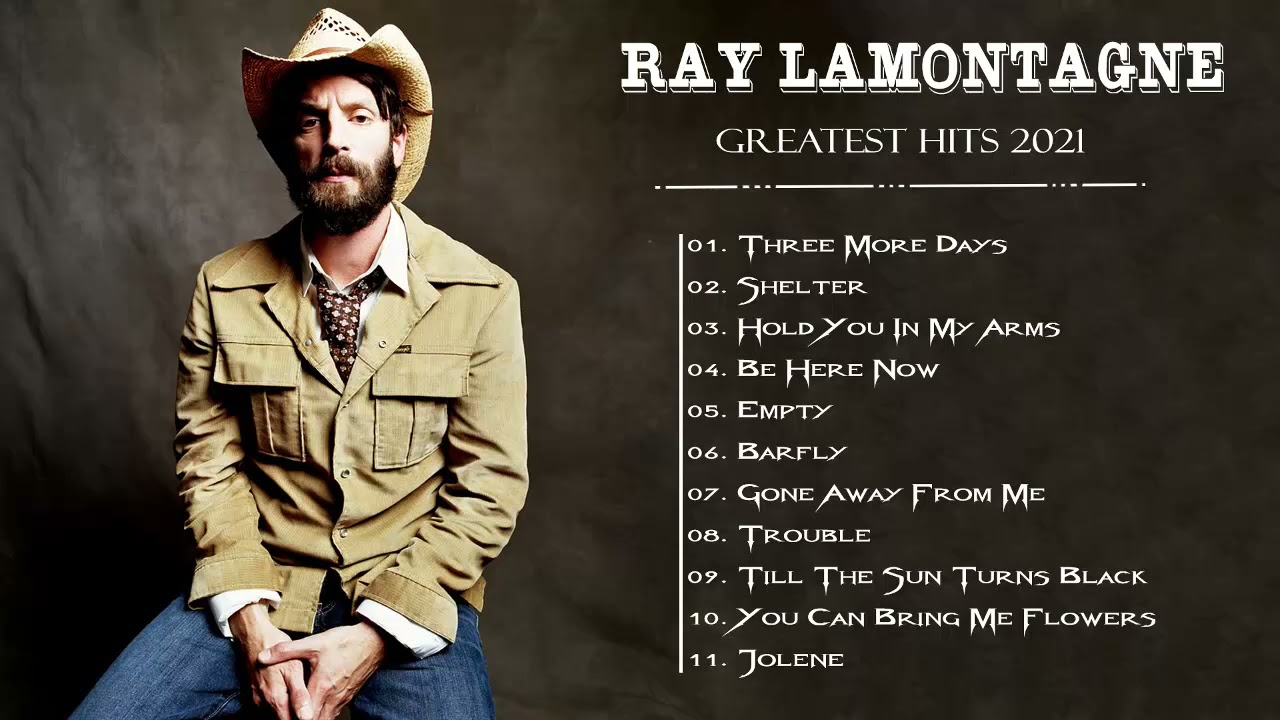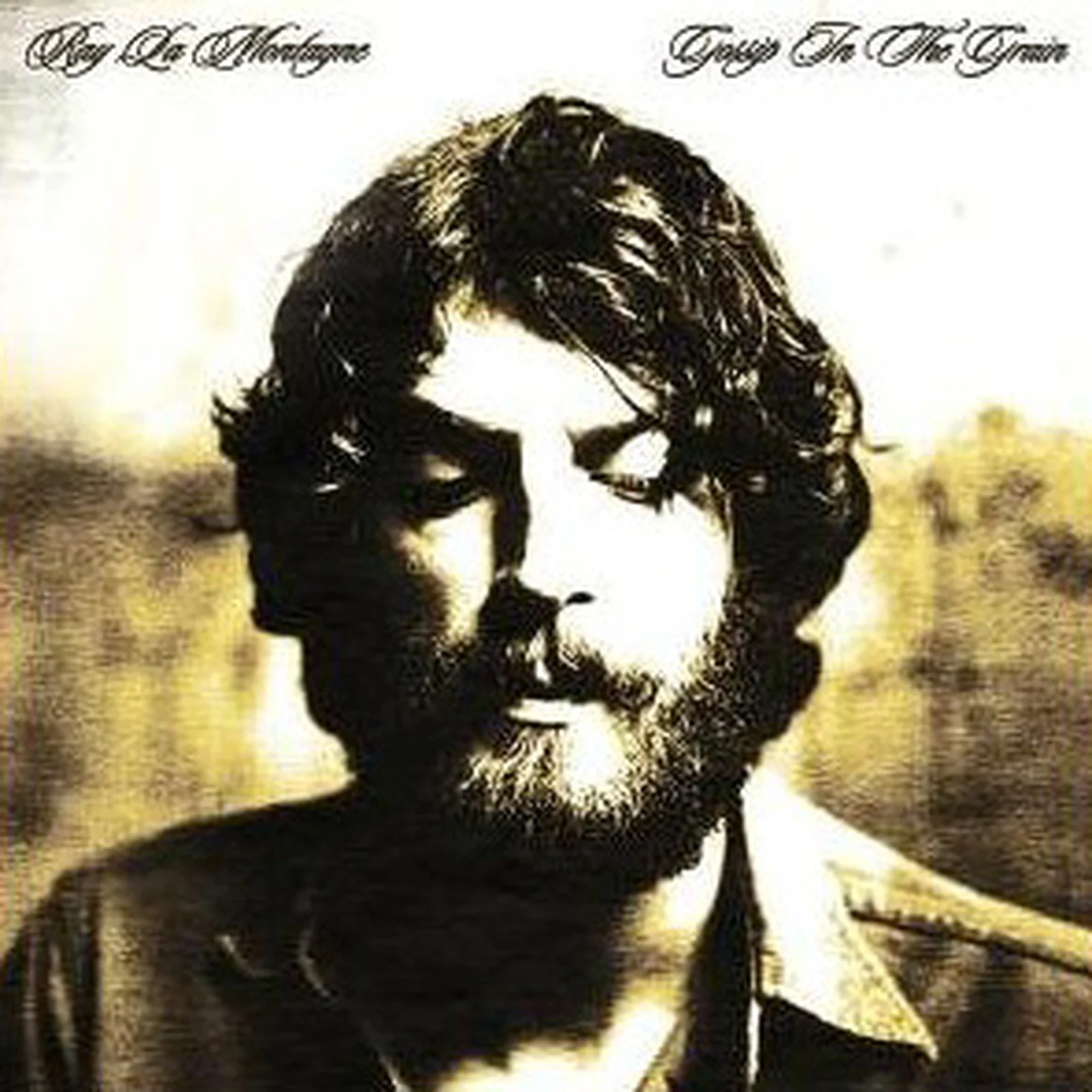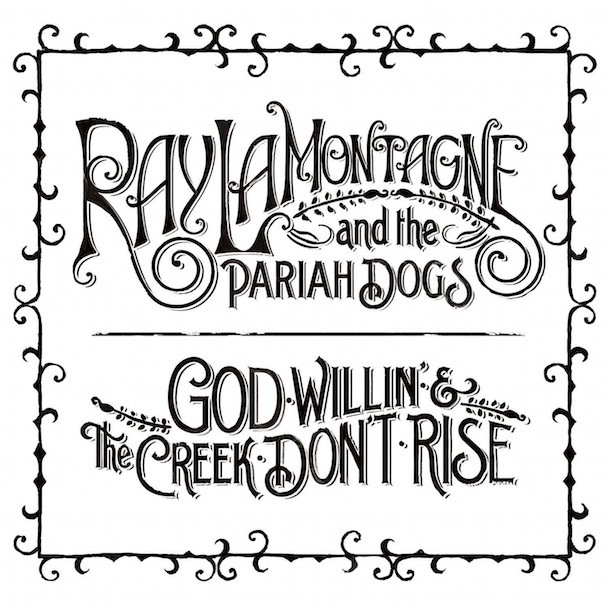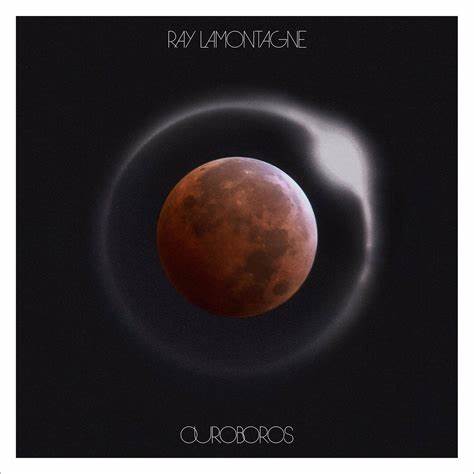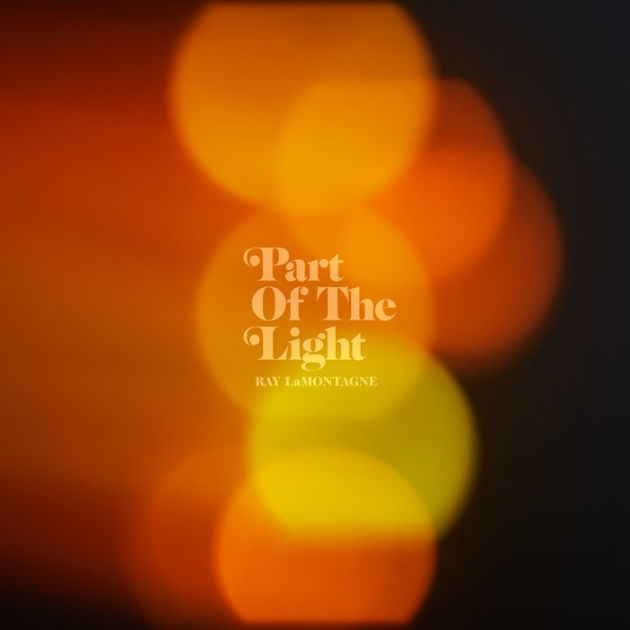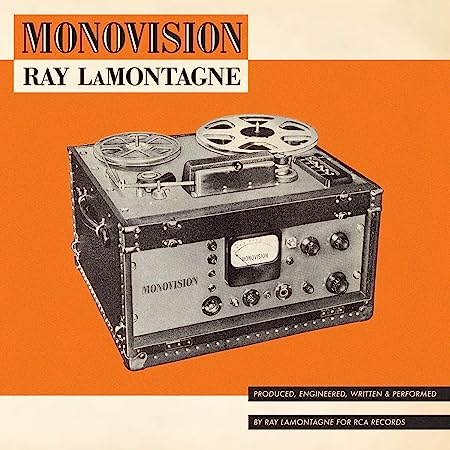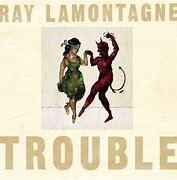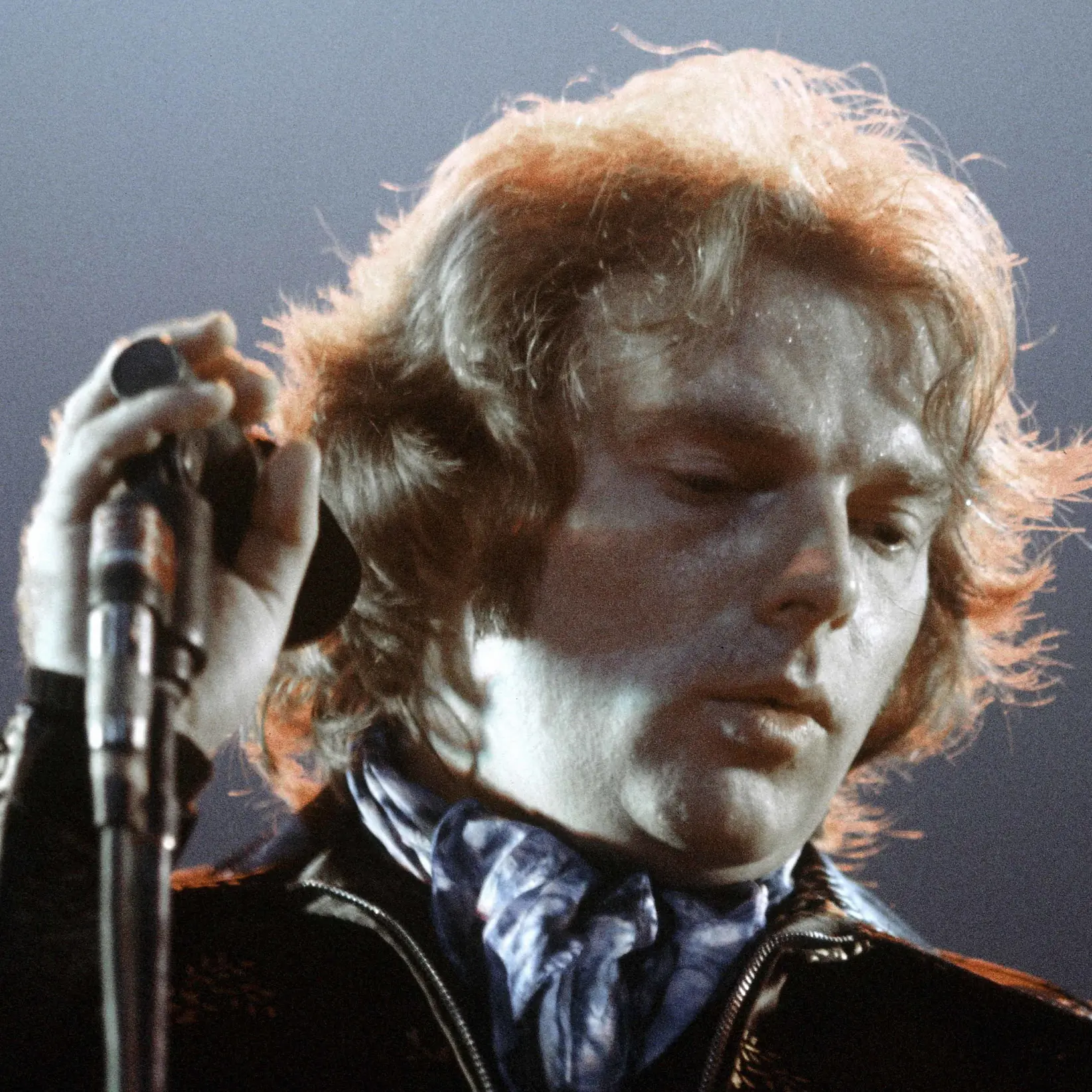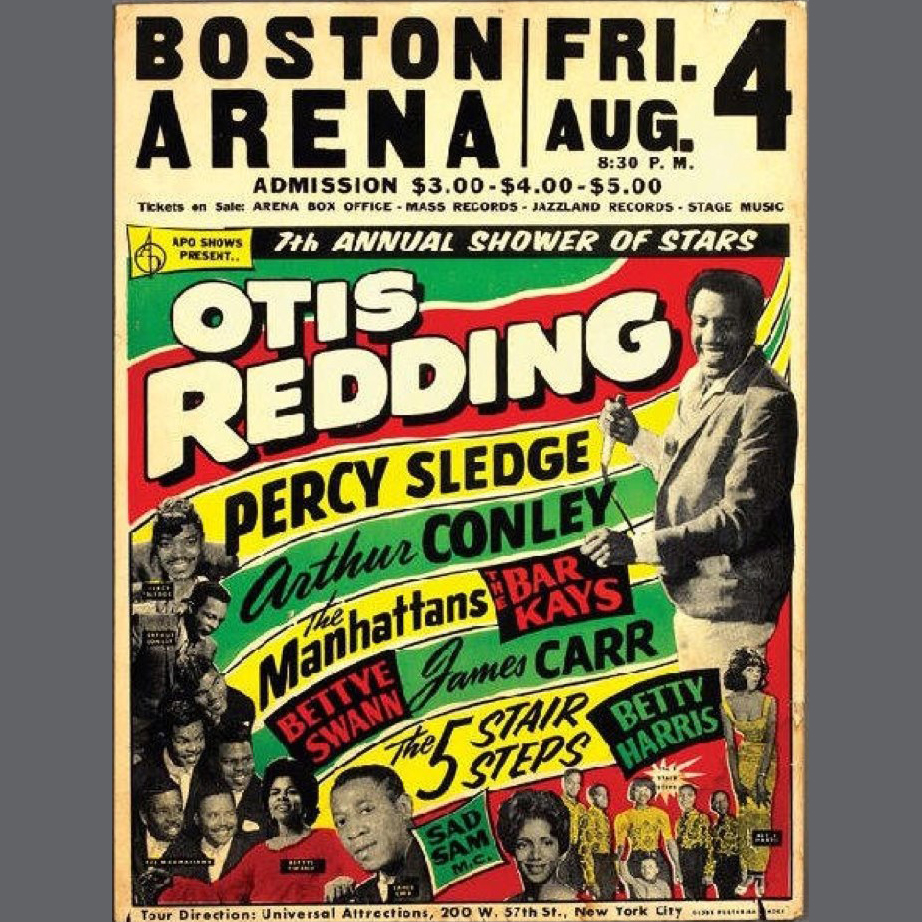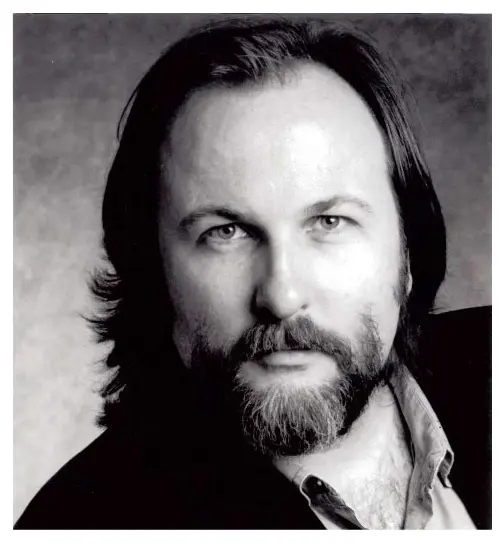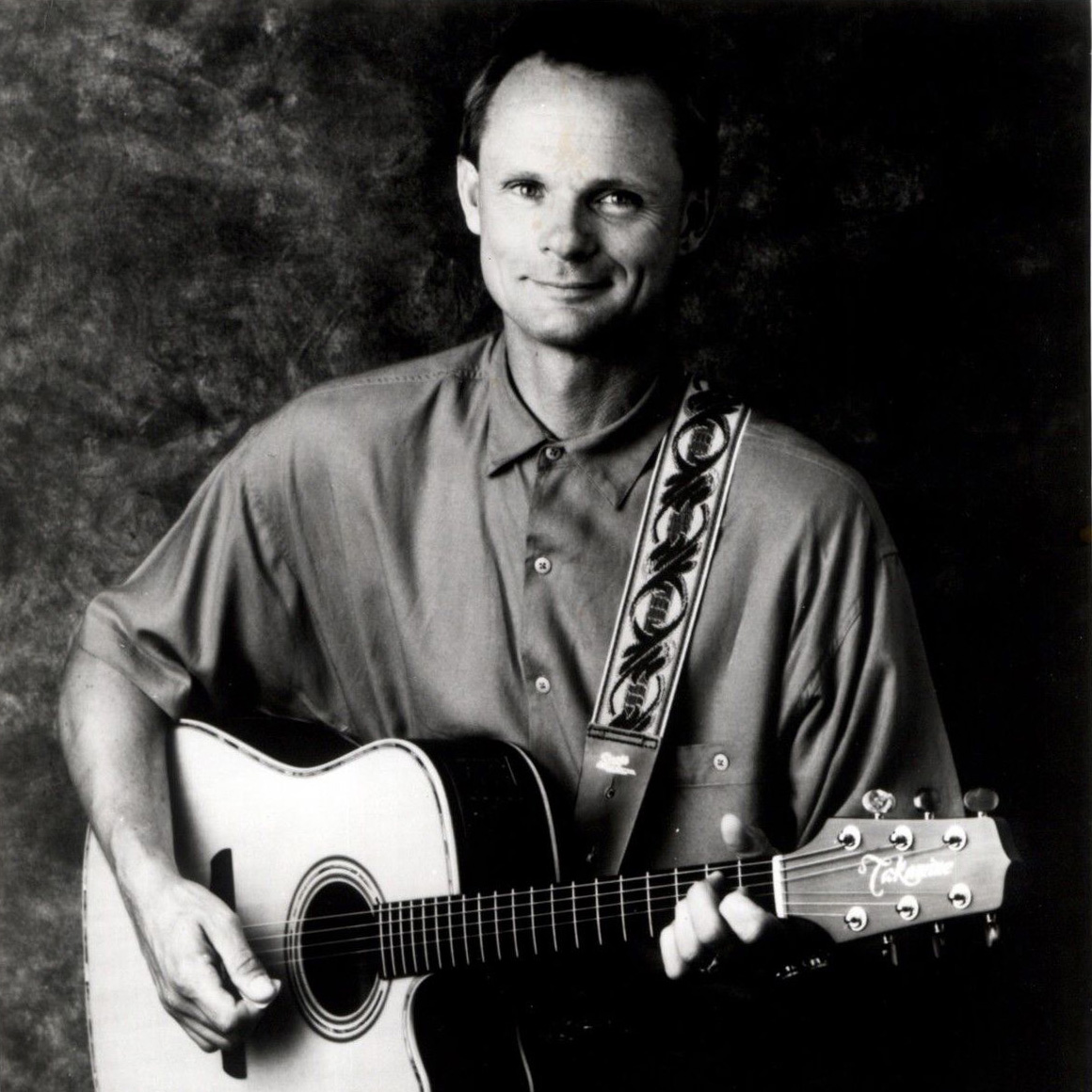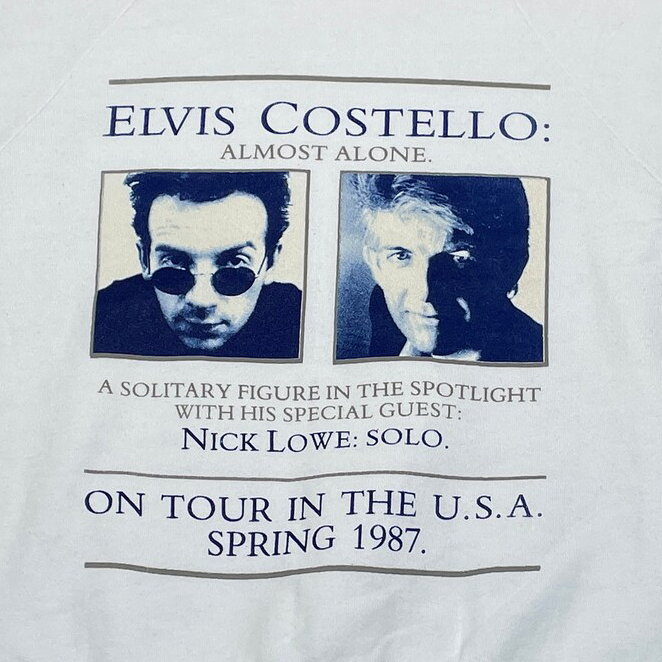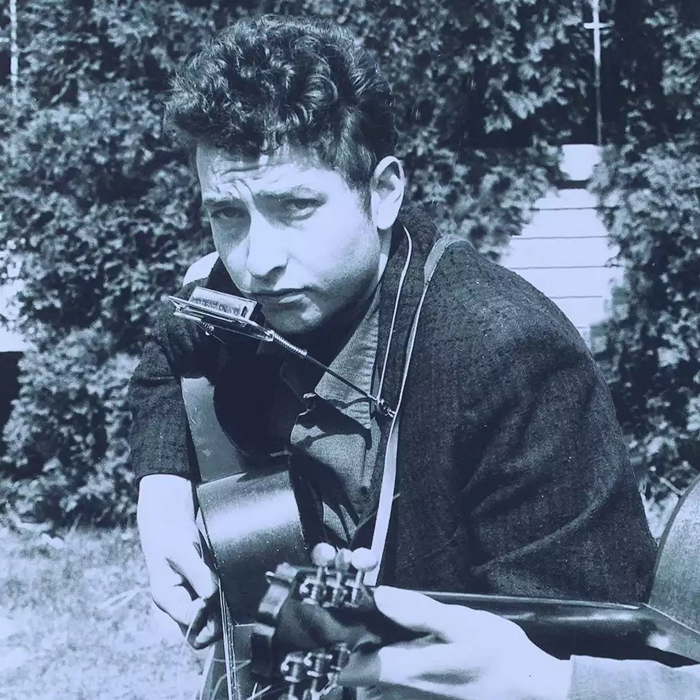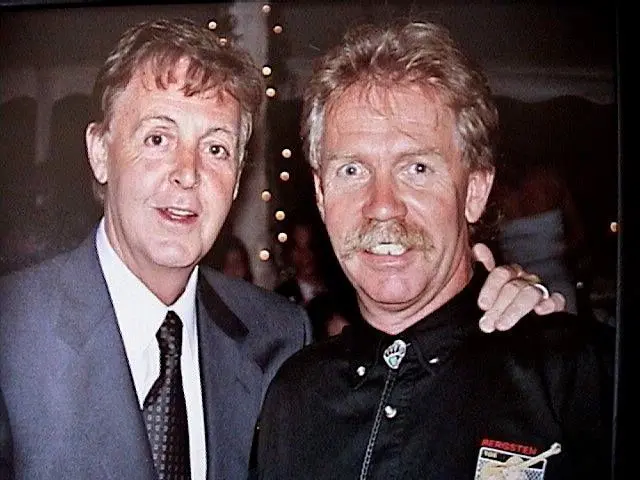Ray LaMontagne
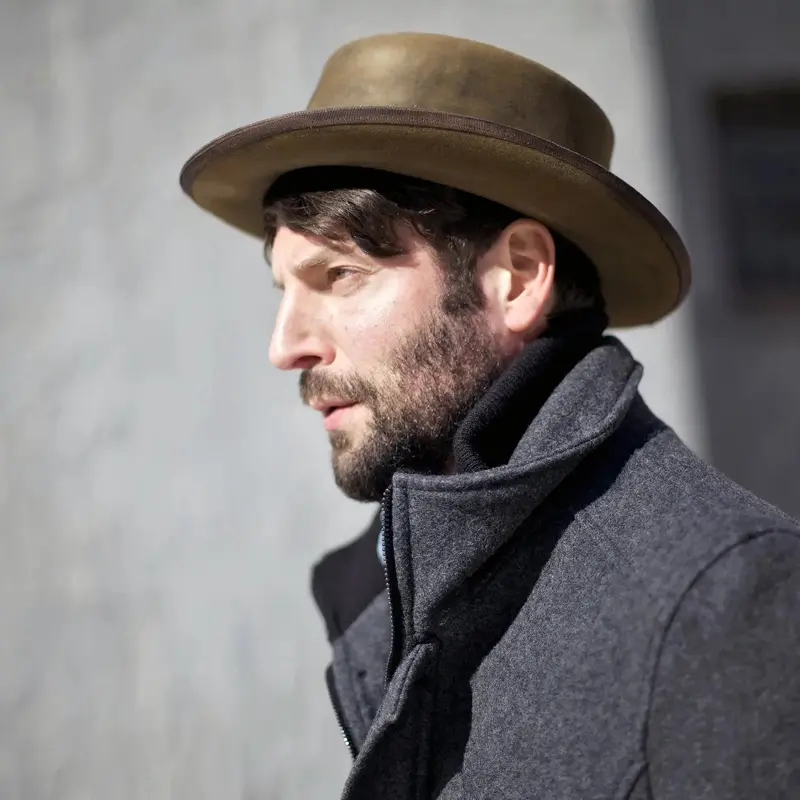
He’s won a Grammy, three Boston Music Awards and an XM Nation Music Award. He’s “one of the greatest songwriters of our time,” wrote Rolling Stone Senior Editor David Fricke. His voice is “as authoritative as James Earl Jones and as soulful as Al Green,” according to Esquire. And publications ranging from Americana, Radio Times and Roots to The Atlantic, The Washington Post and The Wall Street Journal have also sung his praises.
What does all this mean to singer-songwriter Ray LaMontagne, the subject of such widespread acclaim? Not much. “I don’t pay attention to that shit,” he told Billboard magazine in 2014. “All of that stuff’s out of my control. I just make records. And hope they’re beautiful.”
OVERVIEW
Since stepping into the national spotlight with his critically acclaimed major-label debut album in 2004, LaMontagne has developed a reputation akin to Van Morrison’s: an enigmatic, reclusive, perpetually tormented troubadour who pens and performs soul-baring songs while revealing precious little about himself. “My songs aren’t autobiographical,” the New England native said in a 2014 interview with The Independent. “It’s just storytelling, universal truths.”
Known for his distinctively gruff vocal style – which Rolling Stone’s Will Hermes called “an impeccably weathered tenor croon” mixed with “marble-mouthed” phrasing – LaMontagne has cited Morrison, Stephen Stills, Joni Mitchell, Bob Dylan and The Band as major influences. Critics have often compared him to Morrison, Otis Redding, Nick Drake, Tim Buckley, Ryan Adams and Beck.
LaMontagne has recorded 10 studio albums and more than a dozen of his songs have been used in film and television soundtracks. In October 2011, he was the subject of a VH1 Storytellers episode produced by Rhode Island Music Hall of Fame inductee Bill Flanagan.
EARLY YEARS
Raymond Charles Jack LaMontagne was born June 18, 1973, in Nashua, New Hampshire. His parents split up shortly afterward and he was raised by his mother as she moved between states – Nebraska, Oregon, Minnesota, Utah, Tennessee and Maine, reportedly – which made him the perennial new kid in school. “We lived pretty much wherever we could, with relatives, in a bus, [and in] a converted chicken coop, where I recall my mom stacking apple crates to section off an area that she called her room,” he told The Sun in 2011.
By 1993, he was living alone in a cabin in Lewiston, Maine, doing carpentry work before settling on a job at a shoe factory. He still prefers a rural lifestyle and since 2009 has lived on his 102-acre farm in Ashfield, Massachusetts. “It’s something in my DNA,” he said in 2014. “I need space.”
MUSICAL BEGINNINGS
LaMontagne was first inspired to try songwriting in 1998 when he awoke to Stephen Stills’s “Treetop Flyer” playing on his clock-radio alarm. That track, from Stills’ 1991 LP Stills Alone, sparked something of an epiphany in the then 25-year old – who’d dabbled on guitar and other instruments but didn’t consider himself a “musician” – and he put a plan in place to become a professional singer-songwriter. “I listened to [Stills Alone] and I was transformed,” he told The Sun in 2011. “I decided to give myself five years to see if I could get an audience for my music, and to tour enough without destroying things at home.”
Married with two young children at the time, LaMontagne quit his job at the shoe factory and took on part-time tutoring work to pay the bills while honing his instrumental and songwriting skills. By early 1999, he was playing to tiny audiences but that summer, in a major boost to his regional profile, he landed an opening spot for singer-songwriters John Gorka and Jonathan Edwards at the 150-seat Oddfellow Theatre in the Lewiston suburb of Buckfield. In 2002, he self-released the album Introducing Raycharles LaMontagne, a collection of nine originals.
RCA SIGNING, TROUBLE
In summer 2003, promoter Ron Clayton caught LaMontagne’s set at a Maine festival and sent his demo tracks to Chrysalis Music Publishing exec Jamie Ceretta, who landed LaMontagne a deal with RCA Records. The result was his major-label debut, Trouble, issued in September that year and thus meeting his self-imposed five-year deadline to make a mark in the music business.
The album includes 10 tracks, nine written by LaMontagne and one he co-wrote with the LP’s producer, Ethan Johns (Paul McCartney, Crosby, Stills and Nash, Tom Jones). LaMontagne is credited for vocals, acoustic guitar and harmonica and Johns is credited as the strings arranger (violins, cellos), second guitarist, bassist, pianist, pump organist, drummer and percussionist. Stephen Stills’ daughter Jennifer sings backing vocals on one track.
The LP, which The Independent called “bleakly beautiful,” fared far better in the UK than in the US, reaching #5 in the UK albums chart but peaking at #164 in the Billboard 200. The single “Trouble” hit #25 in the UK. All charts aside, the album won LaMontagne three Boston Music Awards – Best Male Singer-Songwriter, Album of the Year and Song of the Year – and an XM Nation Music Award for Acoustic Rock Artist of the Year, establishing him as a formidable up-and-coming presence.
Several songs from the album were used in television series and films, starting a pattern that continues today. The first was “Trouble,” which went platinum in the US after being used in a Travelers Insurance ad campaign and episodes of the television series Rescue Me, The Office, Alias and True Blood and the 2005 film A Lot Like Love. “All the Wild Horses” was used in the Rescue Me series and the 2009 film The Boys Are Back and “Jolene” was included in the 2010 film The Town.
TILL THE SUN TURNS BLACK
LaMontagne’s sophomore studio effort, Till the Sun Turns Black, represented a significant expansion from Trouble, with horns in addition to a string section on several songs. Lyrically bleaker than its predecessor, critics hailed his ability to craft heart-wrenching tunes and deliver them with a stirring, at times eerie, depth of expressiveness
Released in August 2006, the album reached #28 in the Billboard 200 and #35 in the UK. Once again, several songs made it onto soundtracks: “Till the Sun Turns Black” on the show ER; “Lesson Learned” and “Within You” on the CW drama One Tree Hill; and “Be Here Now” in the films Away From Her and 27 Dresses and the shows Bones, Covert Affairs, New Amsterdam and Brothers & Sisters.
GOSSIP IN THE GRAIN
LaMontagne next album, 2008’s Gossip in the Grain, debuted at #3 in the Billboard 200 and #28 in the UK, making it his biggest commercial success to date. The single “You Are the Best Thing” cracked the Billboard Hot 100 at #90 and, not surprisingly, three songs were used for film and television: “You Are the Best Thing” in the movie I Love You, Man and in the series One Tree Hill; “Sarah” and “I Still Care For You” in the series House; and “Let It Be Me” in the series Parenthood, Criminal Minds and Fringe.
The LP’s chart-topping success seemed overwhelming for LaMontagne and he retreated from the public eye, refusing interview requests and making only occasional off-stage appearances. “I can’t pretend [fame] has ever felt natural,” he said in 2014. “I don’t like to be noticed, or even looked at.” LaMontagne has occasionally performed full concerts on a completely unlit stage.
GOD WILLIN’’ & THE CREEK DON’T RISE
His fourth album, 2010’s God Willin’ and the Creek Don’t Rise (as Ray LaMontagne and The Pariah Dogs), was even more successful than Gossip in the Grain and won a Grammy for Best Contemporary Folk Album. Recorded in his home studio, it hit #3 in the Billboard 200, #17 in the UK and the lead single, “Beg, Steal or Borrow,” reached #34 in the Billboard Rock Songs chart. LaMontagne’s soundtrack success continued with “Empty” being included in the series Law & Order: Criminal Intent and the films The Conspirator and Detachment.
ELVIS COSTELLO ADVICE
By the end of 2012, after nearly two years on the road, LaMontagne was so burnt out and uninspired that he had serious writer’s block and considered never recording or touring again. “I think I was just pushing myself too hard in the wrong ways,” he told Billboard. “I started to talk to friends about what else I could do in the music business.” Before making any major changes, however, he wrote to Rock & Roll Hall of Famer Elvis Costello asking for advice. “He’s a hero of mine, and such a gentleman,” he said in 2014. “He told me to simply trust in my voice. The songs suddenly came to me [after that] and I felt lucky to get them.”
SUPERNOVA
That reset led to LaMontagne’s fifth studio album, Supernova, a collection of 10 originals that RCA issued in April 2014. Produced by The Black Keys’ Dan Auerbach, it went to #3 in the Billboard 200 – his third straight album to do so – and #1 in the Billboard Top Rock Albums chart. Billboard called it his “most joyous, playful work,” and some fans complained about the album’s unusually upbeat vibe. “Ray, what happened? C’mon, you can’t reinvent bubblegum music,” one YouTuber wrote.
In 2015, television helped to promote LaMontagne’s material again, though less directly than before. Sawyer Frederick won NBC’s singing competition The Voice that year after performing “Please” from LaMontagne’s self-released 2002 album and his rendition went to #2 in the iTunes chart.
OUROBOROS, PART OF THE LIGHT, MONOVISION, LONG WAY HOME
In March 2016, RCA issued LaMontagne’s sixth LP, Ouroboros, produced by Jim James of Kentucky-based roots-country-psychedelic rockers My Morning Jacket. Drenched in blues guitar with a trippy, psychedelic vibe, it peaked at #13 in the Billboard 200 but hit #2 in the Billboard Top Alternative Albums chart with a number of reviews comparing it to Pink Floyd’s iconic 1973 LP The Dark Side of the Moon.
RCA released LaMontagne’s seventh studio LP, Part of the Light, in May 2018. As with everything disc he’s cut since his debut, it was a major commercial and critical success, hitting #1 in the UK Americana Albums chart and appearing on five of Billboard’s charts: Folk Albums (#2), Top Alternative Albums (#5), Top Rock Albums (#6), Vinyl Albums (#8) and Top Album Sales (#10).
In June 2020, RCA released LaMontagne’s album Monovision, which stalled at #163 in the Billboard 200. He recorded and mixed it himself at his home during Covid-19 lockdowns and is credited for vocals, guitar, bass, harmonica, keyboards, drums and percussion. His latest studio LP is Long Way Home, issued in August 2024 by Liula Records.
COMMENTS ON SONGWRITING
Asked in 2014 why Supernova was such a departure from the melancholic songs for which he’s best known, LaMontagne said he has no explanation. “I’ve heard people say that ‘I’m happy now.’ It’s just so absurd to me,” he told The Independent. “There’s no ‘happy Ray’ and there’s no ‘sad Ray.’ I just write songs. When they come to me, those are the ones that come to me.”
Asked how he feels most of the time, his reply showed contentment and a newfound openness. “I’m comfortable now,” he said. “I’ve managed to carve out a niche in a very tricky and uncertain business. And I no longer play with the lights out. If anything, more lights than ever.”
(by D.S. Monahan)


